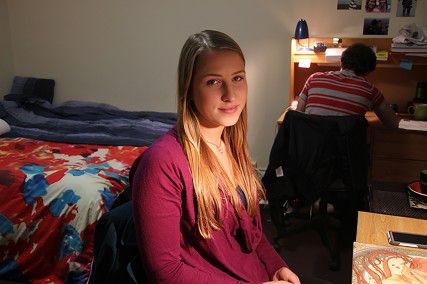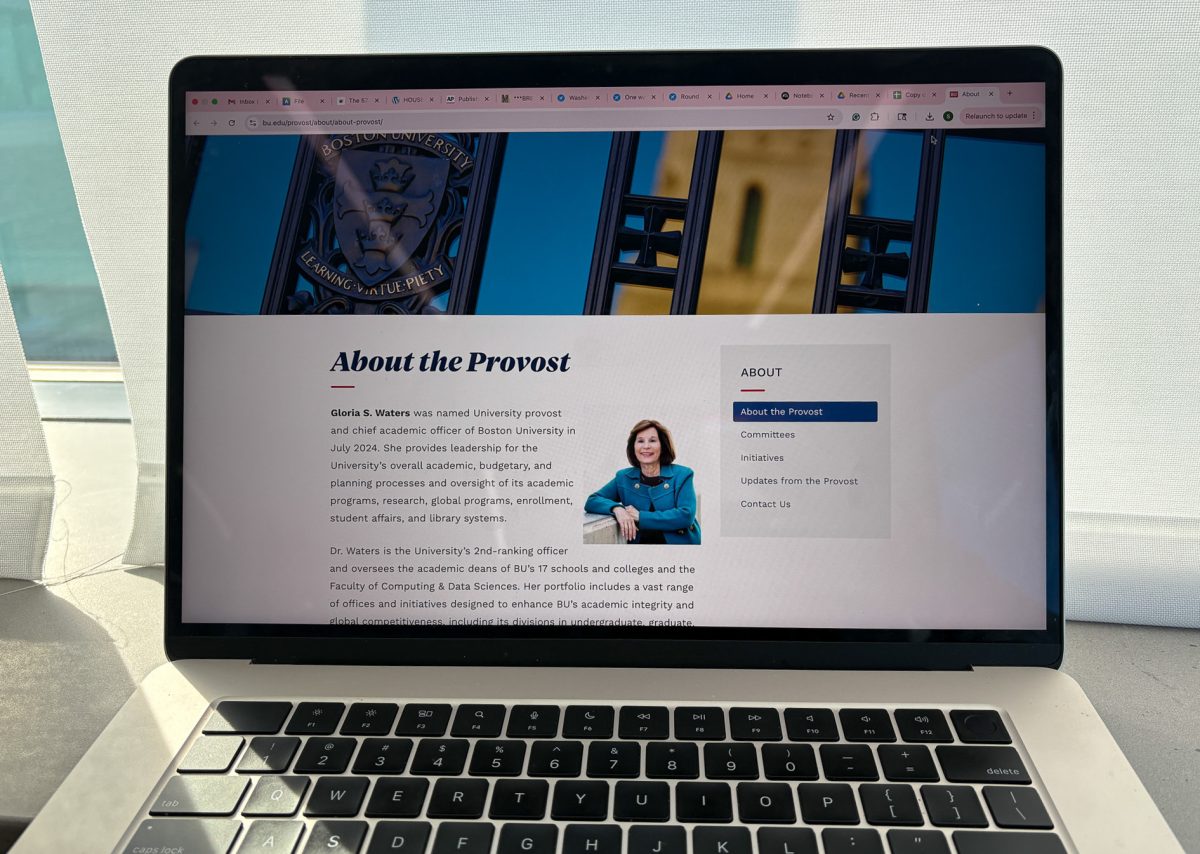
For years, the Boston University student body has been collaborating with Student Government, the Center for Gender, Sexuality and Activism and other groups to advocate for gender-neutral housing on campus.
The process had its ups and downs, its charges forward and its surprising snags, but now, for the first time during a spring housing selection, students have that option they have been requesting for so long.
In August, BU President Robert Brown approved the gender-neutral housing proposal after the administration abruptly halted it in December 2012. Since then, students have taken advantage through direct room swaps, allowing them to live with any fellow student of any gender identification.
“When I came onto the initiative freshman year, in pushing it, I received comments from students saying they wanted gender-neutral housing because they didn’t feel safe on campus, they had to hide their identities and they didn’t feel comfortable within BU’s residence halls,” said former Chair of the BUSG Advocacy Committee D.A. Whatley.
Whatley, a junior in the School of Management, said SG had been “given a mandate” by the student body to bring gender-neutral housing to BU.
“I felt as though as a member of the BU Student Government at the time and as a student in general that none of my fellow Terriers should feel that way at all,” he said.
While students were only able to achieve gender-neutral housing in the 2013-14 academic year through a process of directly switching rooms, the option will be available as a choice in almost all residence halls for the 2014-15 school year. Warren Towers, Claflin, Rich and Sleeper Halls, The Towers and the Myles Annex will not offer gender-neutral housing.
“For some students who moved off campus, it was because they wanted to live with someone of the opposite sex, and this certainly makes that available [on campus],” said BU spokesman Colin Riley. “Ideally, you’re going to be in a living environment that is suitable to the way you live, suitable to your getting the most supportive academic and learning environment.”
Whatley said the movement initially faced opposition from students and parents.
“I had discussions with students and parents saying that this isn’t acceptable, this wasn’t the way things were when I was in college,” Whatley said. “There were students that felt as though due to the sexual assaults that had been taking place recently on campus that men would force themselves upon young women. It was intense.”
Whatley said students should thoroughly consider whether they wished to pursue such living situations.
“There were a lot of concerns,” he said. “It wasn’t all roses, but the overall gains of providing this option to students outweighed the potential downsides.”
Sargent College of Health and Rehabilitation Sciences sophomore Maya Inozemtseva and College of Arts and Sciences sophomore Daniel Smith were the first students to swap into gender-neutral housing.
The couple, who were long-time friends before they began dating, have been living together in Danielsen Hall since Inozemtseva’s roommate vacated her residence in May.
“I saw it as a trial period,” Inozemtseva said. “If it didn’t work out, we could always just switch rooms, but everything worked out fine.”
The couple will be living in an off-campus residence next year.
Riley said fewer than 10 students currently utilize gender-neutral housing, though that number is likely to increase as more students choose roommates for their spring housing selection appointments.
“We have yet to see what the demand is, and we don’t anticipate that it will be unexpected or something we can’t meet,” Riley said.
Several students said they felt this is an important housing option for BU to offer.
“There are people who are gender-fluid, who don’t really fit into binaries, that would appreciate it,” said Francesca Riegler, a sophomore in CAS. “It’s important that you feel comfortable where you’re living, and if you’re going to be here to learn, you should be able to have a safe space to go and study and live.”
Sade Franco-Ogunleye, a sophomore in SMG, said she would not use gender-neutral housing for herself but supports its existence.
“I don’t think it affects me personally, but for the people who have been fighting for gender neutral housing, it is an important resource,” she said. “If they identify with a different gender, they’d feel more comfortable living with the gender that they identify with.”
Sabih Siddiqi, a junior in CAS, said it was a “great accomplishment” for the student government and student body.
“If it’s being underused right now, I’m sure in the future it will be used as it was intended to,” he said. “If it’s only four students, it doesn’t matter. Even if it’s only one, that would be absolutely fine. That’s something I feel the student body should advocate.”
























































































































